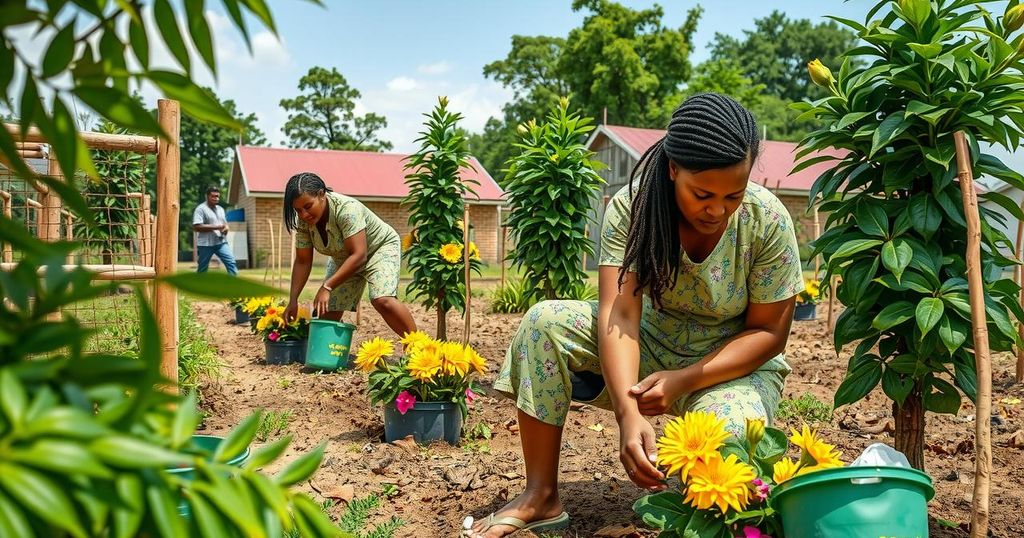Reviving Freetown: Women Leading the Charge Against Climate Emergency
Yvonne Aki-Sawyerr, mayor of Freetown, Sierra Leone, addresses climate challenges post-Ebola, focusing on deforestation and extreme heat adaptation. She appointed Africa’s first chief heat officer and has initiated tree-planting projects. The article highlights her optimism in restoring traditional customs that connect communities to their land while acknowledging funding challenges.
A decade ago, as Sierra Leone was recovering from the Ebola epidemic, Yvonne Aki-Sawyerr recognized a different crisis in Freetown: severe deforestation. The destruction of tropical rainforests for housing and fuel deeply troubled her, leading her to reflect on its damaging implications. “I just suddenly noticed the level of deforestation,” she stated, expressing despair over her observations.
Deforestation resulted in significant loss of the area’s natural drainage, which contributed to a devastating mudslide in 2017, claiming over a thousand lives. The effects of climate change were particularly pronounced, with temperatures frequently reaching or exceeding 100 degrees Fahrenheit. In response to this undeniable crisis, Aki-Sawyerr decided to run for mayor and assumed office in May 2018.
Aki-Sawyerr recognized the immense challenge posed by leading one of the world’s poorest and most climate-vulnerable nations. She has previously campaigned against the blood diamond trade and co-founded a charity for women and children affected by civil war. Despite starting from a bleak outlook, she remains optimistic: “Things that aren’t right don’t need to stay that way,” she asserts.
Having returned to Freetown after a career in London, Aki-Sawyerr prioritized climate adaptation strategies during her tenure. Her notable initiative was appointing Africa’s first chief heat officer, Eugenia Kargbo, tasked with helping residents manage extreme heat. Kargbo has implemented measures like shaded canopies for market vendors and experimented with heat-resistant materials for vulnerable shelters. As Kargbo notes, “Many of the people living in these communities suffer from both outdoor and indoor heat.”
Progress has been made despite financial constraints, with city leaders successfully planting over 1.2 million trees as part of the “Freetown the Tree Town” project, achieving an impressive 82 percent survival rate. This initiative not only provides essential shade but also stabilizes neighborhoods against mudslides.
Aki-Sawyerr reflects on a traditional practice of her country, where a newborn’s umbilical cord would be buried with a newly planted tree, fostering a bond to the land. She emphasizes the importance of reconnecting with such customs. “There’s so many traditions that we have around trees that are lost,” she states. Her hope is that future generations will revive these significant cultural rituals.
The article underlines the dedicated efforts of Yvonne Aki-Sawyerr and her administration in combating climate change impacts in Freetown, Sierra Leone. Despite facing significant challenges from deforestation and extreme temperatures, initiatives like appointing a chief heat officer and the reforestation project demonstrate progress. Importantly, Aki-Sawyerr’s commitment to reviving traditional customs reflects a broader vision for sustainable community engagement in environmental restoration.
Original Source: www.nationalgeographic.com




Post Comment